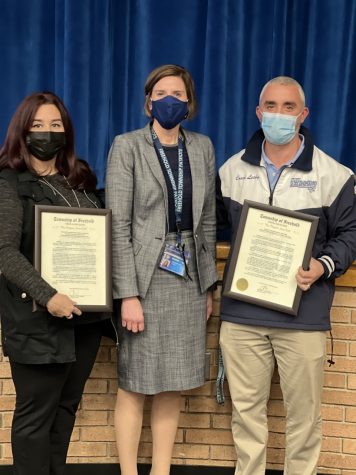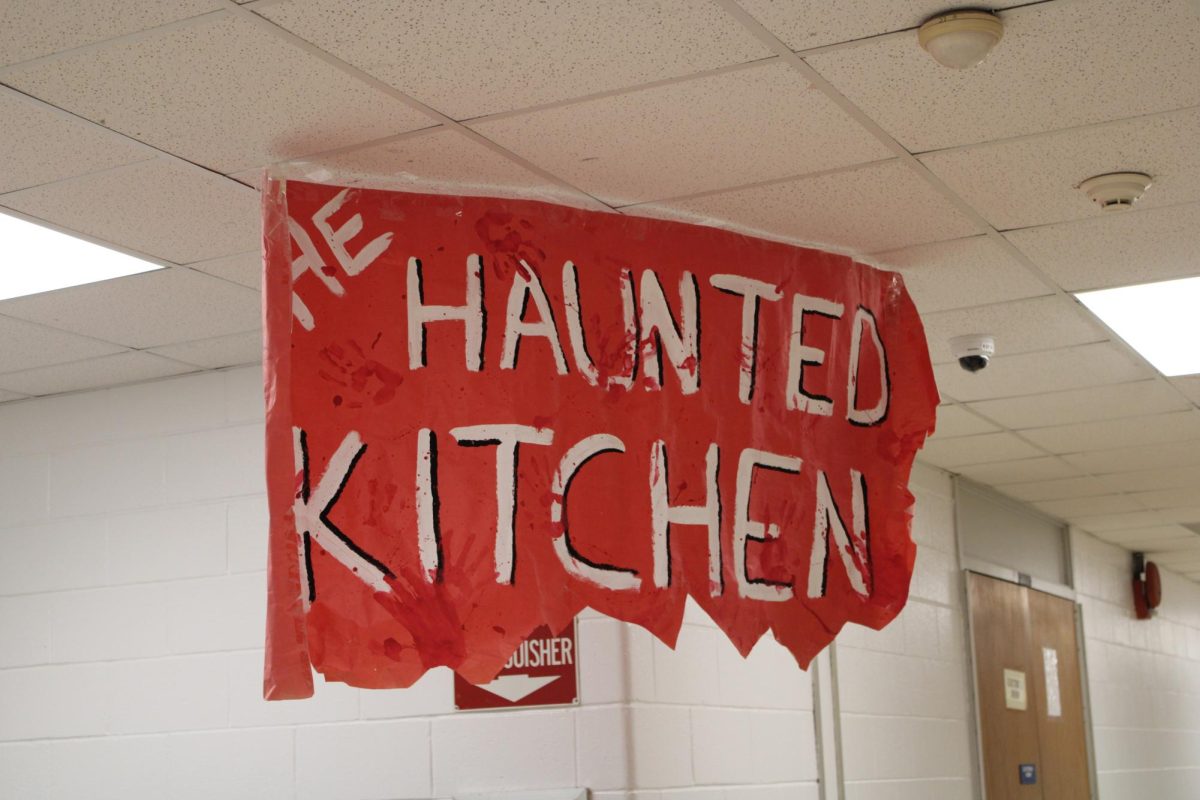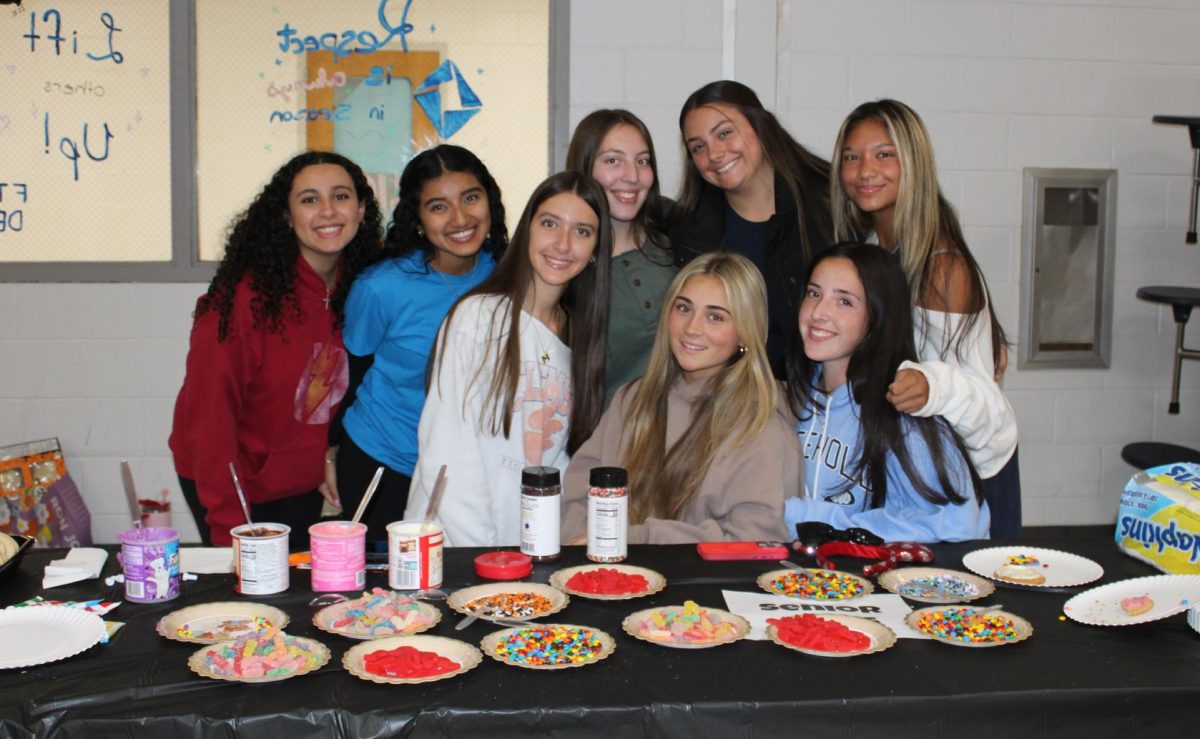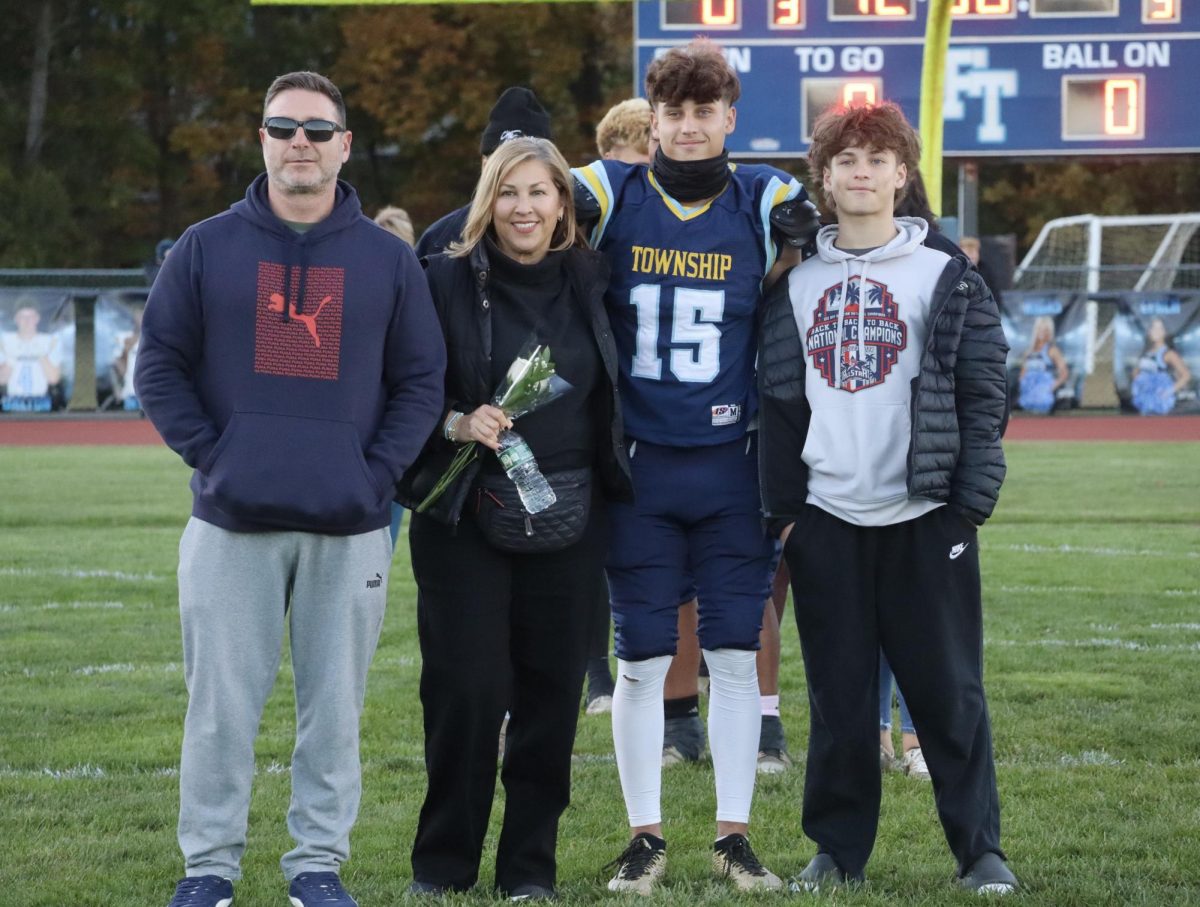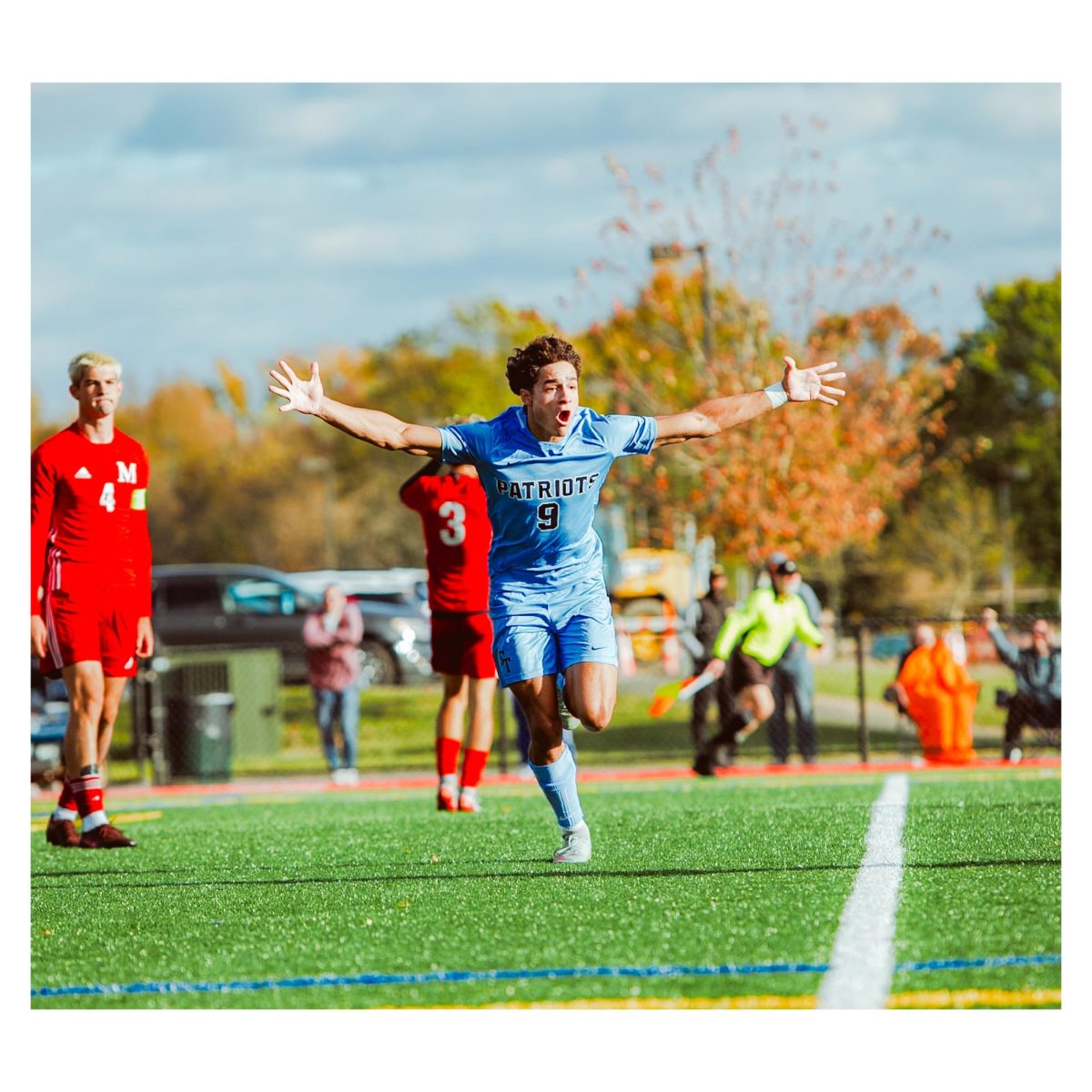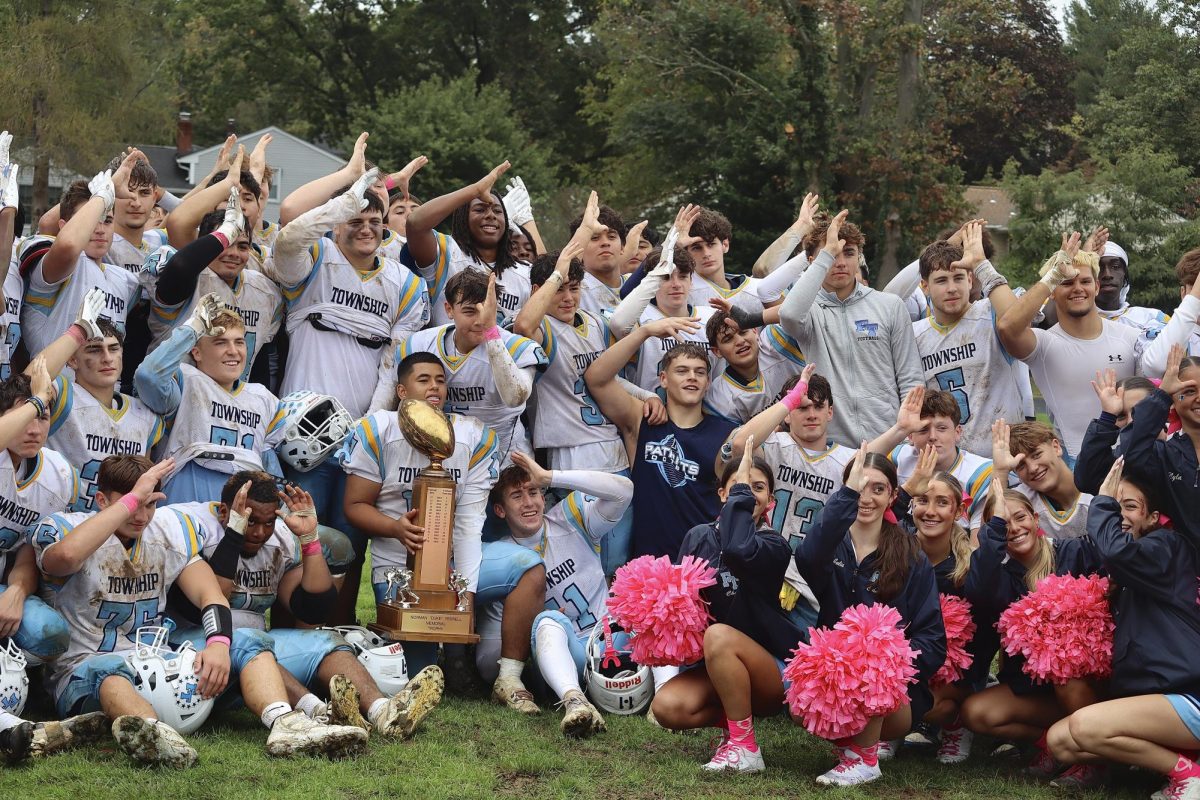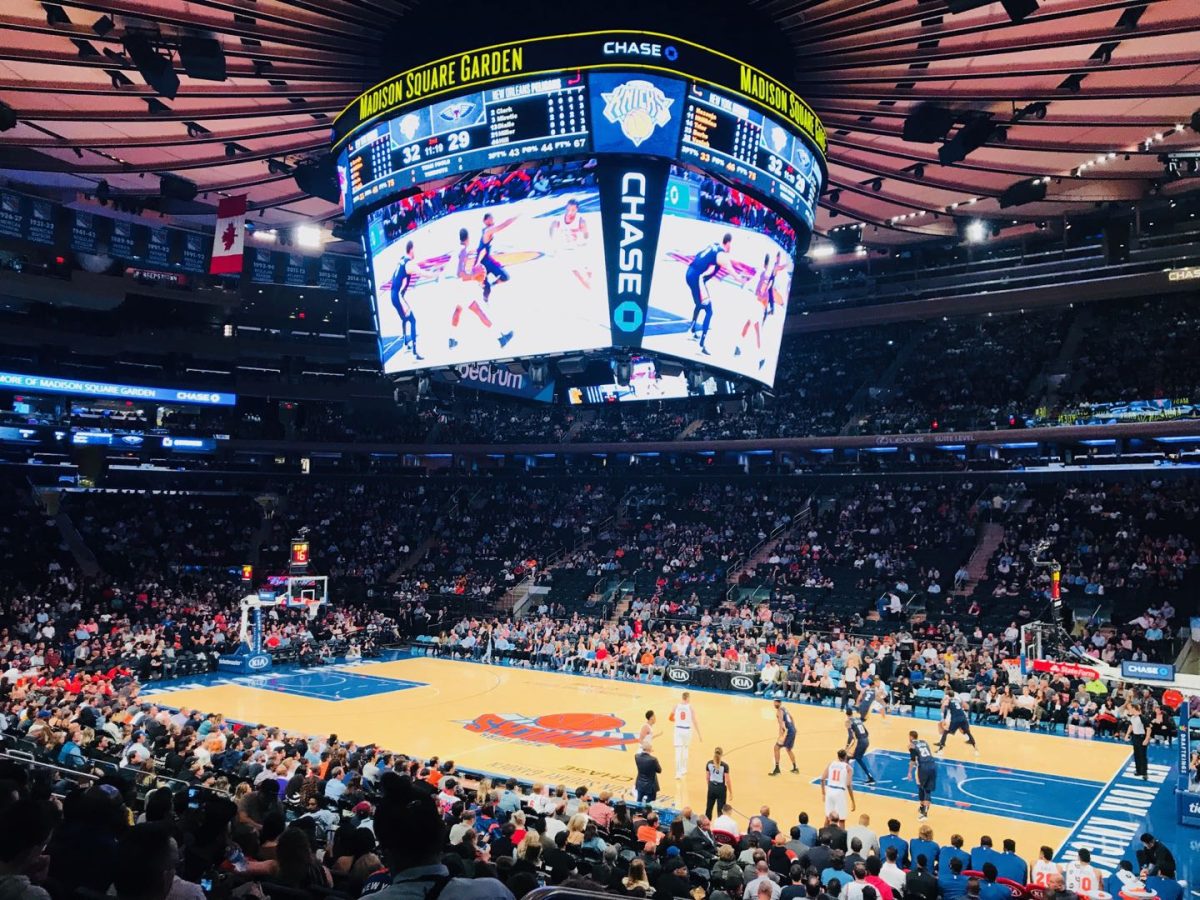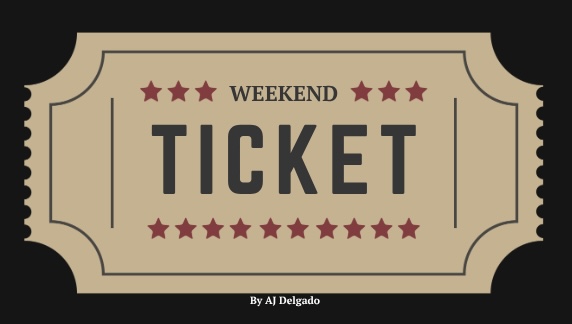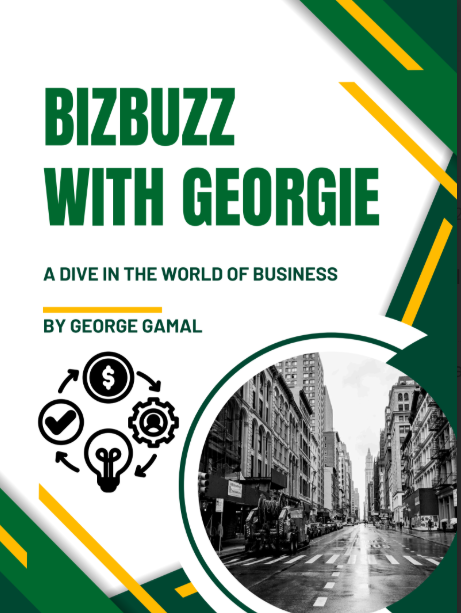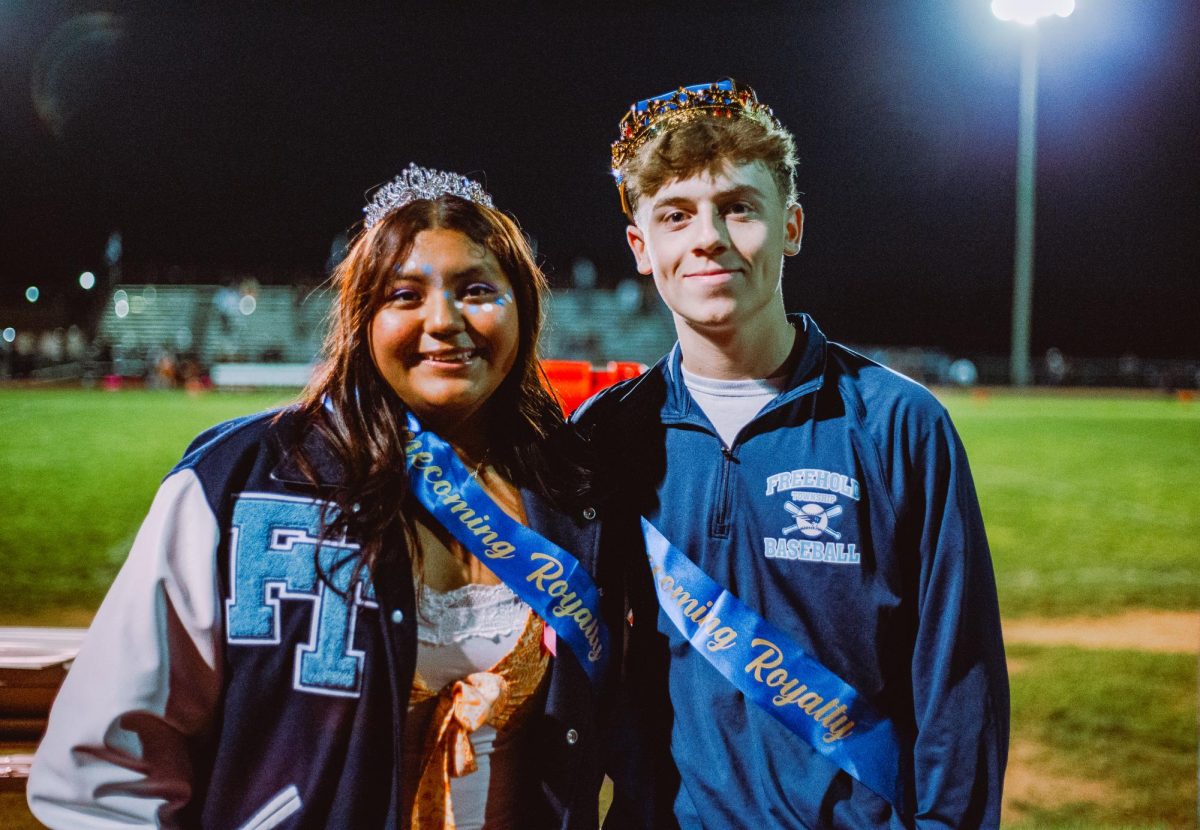Mr. Leahy Wins Teacher of the Year
January 6, 2022
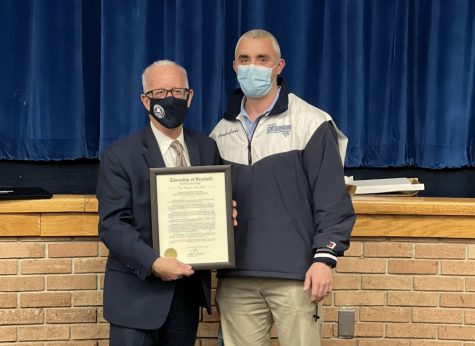
Mr. Leahy is an essential part of the Freehold Township High School community. He is highly valued by his students and colleagues because he commits himself fully to everything he does and acts as an uplifting mentor to all. The amount of people who continually come in and out of his classroom is a testament to the immense impact that he has on so many people. This year he was awarded Teacher of the Year for his outstanding work and dedication to Freehold Township. I spoke with Mr. Leahy about his teaching and coaching career, the importance of resisting the inclination to judge people, as well as how he perceives the future for his students.
Read the full interview below.
Olivia Naum: What has been your best moment while teaching?
Sean Leahy: There have been so many moments in my teaching career. A lot of them don’t actually have to do with teaching. I was actually a student teacher at the time, which is just really terrible. Student teaching overall is just bad because you’re not getting paid, you don’t know what you’re doing and the kids are only a few years younger than you, so like the whole respect thing. But one of my students, back in the day NHS (National Honor Society) had sponsors, so like each person could have a sponsor. So she chose me to be her sponsor and I was a student teacher at the time so I think that moment solidified for me that I wanted to further my career, like I was making the right decision. She could have picked a hundred other people, family members, siblings, but she chose me and I was only there for a short time, half a year. So that was a cool moment and made me feel like I could impact people’s lives and I feel like I’ve done that throughout my career. That one student helped me, motivated me, even though there are times with student teaching where I just wanted to not come in and not show up. I had a really terrible class that year and there were times where I didn’t want to go. But that one moment made the whole thing worth it.
ON: Making those connections with students and really seeing your work mean something to people.
SL: Yeah absolutely and even that terrible class, like crying, dreading coming to that period, the kids were all disinterested but the last day of my student teaching they threw me a party. Probably because they were those types of kids and just didn’t want to do any work but it meant a lot, they organized it, they brought stuff in, they got me a cookie cake. They literally tormented my life for three months and even those kids I made connections with. Those kids, they didn’t love history, they were annoying sometimes but that meant a lot too. So those were cool moments.
ON: What do you think is the most important thing to teach your students?
SL: I’m just a big believer in being a good person. Trying not to judge people until you truly get to meet them and I try to emulate that in what I do here. I think we are all capable and do it more often than we probably care to admit but we prejudge people, we judge them by who they hang out with or what group they’re in in school, it’s so easy in high school like, who you hang out with, your clique, in high school is like who you’re automatically judged as being. I think my years in peer leadership, just listening to people’s stories on a more personal level has shown me that you never truly know what someone is going through and to really just treat everyone fairly and be kind. You know, I’m just a big believer in being a good person and trying to be nice to as many people as you can. Unfortunately, not everyone is perfect and you are going to make mistakes along the way but if I can be a role model to my students and they can see that in me and hopefully that rubs off on them, I think that’s the most important thing.
ON: I think high school can be such a difficult time so I think that people just don’t think about others sometimes. It’s so important to be that person to show how to treat people because it’s still such a growing period.
SL: You look at someone at the surface and you’re like oh wow, they’re everything I want to be. They’re popular, they’re smart, they are a three sport varsity athlete, they have all these friends. But you don’t realize that at home they have all this stuff going on and you’re like oh wow, I thought they had the perfect life and I judged them like that and I wanted to be them but you really don’t know. It’s really cool to see the resilience sometimes with those kids and you’re like despite everything, you should be a statistic but you’re not, you’re a statistic in a good sense. You made it or figured it out. Even I learn from those kids, how strong they are, I get strength in my own life from some of the stories that I’ve heard along the way.
ON: Students are often told that they are the future. What insights do you have about this upcoming generation and the kind of impact they will have on our world?
SL: I see generational differences between kids and the way they grew up with the advancement of technology and stuff like that but I’m a big believer that hard work overcomes all and I see that in my students. So I am hopeful and positive that my students and students here at Freehold Township, regardless of if they have had me, are going to be successful in the future in all kinds of different ways. I think people are so passionate about what they love, we have a lot of people who want to go into healthcare or medicine or law. I think that is so admirable and you can see the passion and when there is passion there is work ethic and drive. While I do think we lack in preparation in certain aspects of getting ready for higher level education, I think instilling a good work ethic and just trying your best will carry kids into the future. So I am hopeful because I just think we have just good people here, good students. You can’t really teach someone to be a good person, you can tell them over and over again but you kind of need to inherently have and have motivation to be that, yes you can change but it’s not something that is easily taught. I am very positive of the outlook. I hear from former students all the time about the things they’re doing in their lives and it’s awesome to hear that they’ve started their career and they are well on their way.
ON: In your experience, how does coaching differ from teaching?
SL: I think they’re totally different. I think they way students act in class as opposed to extracurriculars whether it’s sports or clubs, I think you just see them in their true light and who they truly are. I get to see the mental aspect of whatever they’re doing, the sport they’re competing in and I feel like I’m more of a mentor, psychologist more of the time than a specific coach of the sport. I think being a good coach doesn’t necessarily mean that you’re the best at the sport, having a background obviously helps but anyone can be a good coach, if they can make connections with people and help them through where they are deficient in their specific game. I think a lot of sports are mental and I think that I’m good at talking to people either down or up based on what is going on. In the classroom it’s different because you’re dealing with all different kinds of lacks of. It could be motivation, it could be anxiety induced nervousness for tests and things like that and it’s generally not super competitive. I feel like my best lessons and the times I get the most out of my students are when I promote competition and I think kids really rise to the level, that’s where I draw from the coaching aspect, competition kind of motivates people. That’s how I am, when I go to the gym, like I don’t just go to the gym, I compete against other people or against times, to me that’s important because it keeps me motivated.
ON: Do you think there is a downside to too much competition? Either playing too many sports or focusing too much on one single sport?
SL: There’s a lot of burnout especially in high school. I see it a lot in swimming, more than other sports that I’ve coached because everything is internalized, individualized. When you’re on a team you can kind of be a role player, know your role on the team and do that really well and know that you are contributing to a team. I think with swimming because of how individualized it is, and tennis too. When you’re out on the court, it’s just you. Yes, your points go towards the team in the end but like I can see that becoming a burden and to someone who’s not mentally tough to unfortunately lose matches or for swimmers, as far as times, not hit the times they once hit, that can be mentally taxing. Sometimes too with private coaching and club teams there’s so much stress and pressure. Sometimes you have to have fun, if you’re not having fun in what you’re doing then why are you doing it anymore. I see that with kids who specialize in sports. You have to do something else, have a little fun, go out and play lacrosse and not be the best player and not have all the pressure on you. Just go out and have fun and be an athlete.
ON: I think that’s so important to remind students that it is supposed to be fun. Especially with tennis, if you’ve been doing it for so long, you forget why you’re doing it. I think it’s so special when on your high school team, the fun part is there and it reminds you why you’re passionate and why you have been playing for so long.
SL: And the team aspect, just being part of a team and having that camaraderie, the relationships you make with the girls or the boys, whatever team you’re on. I think that’s so important and that’s how I try to treat high school swimming. I know it’s not as competitive as these elite clubs but there is something to say about being on a team and getting wins for your team, not just times for yourself.
ON: What is your favorite memory as a coach?
SL: It’s a pretty easy answer. I’ve had a lot of great memories as a coach. But my favorite, has to be six or seven years ago, I was coaching lacrosse. It wasn’t on the field, it had nothing to do with the game of lacrosse. We had a special needs student who played on the team and he actually tried out for the baseball team, got cut, wanted to be a manager, they didn’t want him to be a manager either. So the kids told him to come out for lacrosse and he did and he stuck it out the whole season, he was really self-aware when he could do different things and when he couldn’t. He was able to get in a varsity game so it was really a special moment when he got on the field. But at the banquet, the coaching staff wasn’t aware of this, the team put in and raised their own money and bought him a varsity jacket and presented it to him at the banquet.
ON: That’s so sweet.
SL: I’m still very close with him and his mom and she still talks about that moment and how much it meant to Ryan and how much it meant to her. They took him in and embraced him and treated him the same as anyone else. The coaching staff did as well, we didn’t baby him, we didn’t take it easy on him because he had a disability. He just wanted to be treated like everyone else and it’s really cool, he now runs a website and a blog where he does good things happening in sports. His take is that it is always negative, like all the terrible things that athletes do, but not all the positives. He really focuses on athletes who are disabled or overcame adversity or have had disabilities through the military. So that was a special moment in my coaching career and it had nothing to do with me, it had everything to do with the kids that we coached and them coming together for a teammate and that was really cool.
ON: I really like that, that’s sweet. What inspired you to become a teacher?
SL: I think it was a combination of my teachers throughout high school. I went to Howell High School and I had some really phenomenal teachers over there, you know some of them I’m still close with and it was kind of cool, even though I don’t teach at the same school as them, to see them at different events and coaching against them over the years. I had phenomenal teachers, especially history teachers, that pushed me in that direction. I was presented with the history or social studies award because I basically took every social studies class that was offered. But I wasn’t a super high end student, I got good grades and history was my comfort zone. But I had a great psychology teacher, who actually left my senior year, he taught peer leadership and I was a peer leader at Howell so I think a lot of that helped get me more involved in school, especially in my senior year, I was really involved in things that I just wasn’t in years prior. I kind of just went to school. So that solidified my decision to become a teacher.
ON: What other careers did you consider?
SL: I was actually really considering military service. I applied, or started the process of applying to some academies. My uncle was in the Air Force and went to the Citadel. So I really did explore the option of going to the military academies but also in that exploration I learned maybe my grades weren’t on par to get admitted. It’s actually super competitive.
ON: Yeah, my dad went to West Point so, I know all about that.
SL: Yeah so, I was considering and hoping that my Air Force connection could get me into the Air Force Academy. That was my goal for a while and then I went rogue. I didn’t necessarily want to enlist but I did want to serve and I thought military service was really admirable. I always say that if I had a second career choice I would be a Navy SEAL. Just to see if I could actually do it. I don’t know if I could but in my mind that’s what it would be.
ON: What about that career really appealed to you as a student?
SL: I think, first off, the service aspect of it. Just like serving and protecting your country. I always thought what my uncle did was really interesting and cool. He flew helicopters and you know, he served in the Persian Gulf War. By the time that I was applying, he was a higher up, he retired as a general. He was up there in the ranks. I like the structure, I like the physical aspect, I like to stay in shape, none of that physical endurance stuff made me shy away from that career choice. So I think those two things fit. Serving and helping others, not so much risking your life, maybe I wasn’t necessarily thinking about that at the time. Now in retrospect, that’s why 17, 18 year old guys are the way they are. We don’t really think things through a whole lot of the time.
ON: I think in a way that really fits into you becoming a teacher that’s a big part, the helping others aspect. In both careers there is a clear theme of you having a strong desire to help people.
SL: Yeah, I just like working with people and I guess growing up, I always, around the holidays especially, I would feel connected to Giving Trees or donations. My family didn’t always have a ton but my dad always went all out for Christmas, for my family, but he was also extremely generous too. I knew we didn’t have a ton of money to give away but he helped where he could, so I think I get a lot of that from my father. I just like the fact that teaching allows you to help a lot of different students from lots of different ability levels or backgrounds. You can be that kind of person, that go-to person for someone and hopefully affect their future and life in general.
ON: Looking back on your teaching career, what would you have done differently?
SL: That’s a good question. I don’t want to give the cliche answer, I wouldn’t change anything. It’s like a good thing and a bad thing, I guess a few years ago, I set out to get my degree in education leadership, to become a supervisor or principal. I really thought that was where I wanted to go and like move up the ranks and I still think that might be in the realm of possibilities somewhere down the line but after going through the courses and graduating with the degree and the certificates, I was very gung-ho about applying for jobs. I think it was just premature and I’m happy that those opportunities didn’t work out because I don’t think I’m ready to leave the classroom. I just love what I do, I come to work everyday and it’s not like something that I dread doing. I really do enjoy and have fun here, the coaching would have gone away, the extracurriculars, student government all those things that make school fun. A lot of my responsibilities would have been like paperwork, scheduling, not dealing with students at all, or dealing with students in a negative way. I think maybe at some point in my career I might need a change but if I could go back, I would still have gotten the degree just to have, I think it was a good opportunity and when I did it was the right time, but I think I would just hold off on maybe applying and putting myself out there because I truly wasn’t ready. Things happen for a reason. Things fall into place. I’m happy where I’m at.
ON: That’s really great. How has your outlook on education changed from when you were a student to now being a teacher?
SL: As a student, I had good and bad teachers. As a student, you internalize and make it personal and it’s not. Or the person is not a very good teacher to begin with and maybe they’re not in the profession for the right reasons or they’ve been in the profession for too long and now they are holding on for specific things, like their life and livelihood, to pay bills. Seeing that from a teacher perspective, you kind of understand it, it puts a little bit of a more human spin on the fact that there are a lot of different reasons to continue to work, like maybe you don’t know they lost their spouse and now they’re taking care of everything, they were going to retire 10 years ago but they can’t. Or they had a divorce. It’s things you don’t think about when you’re a high school kid. Sometimes you just think oh they just don’t like me or they don’t care, they don’t care about me, they’re out to get me. I don’t think it’s like that most of the time. Maybe there are like certain instances that it does happen but for the most part, teaching is just like any other career. People are here for the right reasons and they love what they do but others it’s a job and want to collect a paycheck. So I see both aspects of that now a little bit more clearly than when I was in high school. I was judging my poor teachers.
ON: I always think about that being back in a high school setting when I’m older and that’s just really interesting to think about. You’re almost like re-experiencing but seeing it in a completely new way.
SL: Yeah, it’s funny, as the years go on, there’s different challenges. When I first started my career cell phones weren’t a super big deal and then they became a big deal and now they’re just kind of a nuisance that we deal with. Obviously when you go through a pandemic, there’s other obstacles. There’s always something. Education is very cyclical, things come back around and our professional development, it’s literally the same things just repackaged in a different way. So that’s all very interesting. But I always say I feel like I’m a senior in high school every year for the last 14 years of my life, so that’s kind of cool. Especially if you liked high school, if you didn’t like high school then that might be eternal torture.
ON: What’s something that most of your students wouldn’t know about you?
SL: I’m generally a very outgoing, happy, positive person but unfortunately my family, mainly my father, has been sick for a really long time. So that’s something that people, looking at me, wouldn’t know is going on. He was diagnosed with early onset Alzheimer’s and has been in a nursing home for like, I want to say, over seven years now. So that’s something that is in the back of my mind and easily something that someone could dwell on and it does affect me from time to time. I think people would be surprised, I guess, to know that’s going on. Some of my students do know and I do talk about it, especially in peer. But we do things, the peer leadership program has always been involved with the Alzheimer’s Association and Alzheimer’s New Jersey, even prior to me getting involved. One of the advisors, unfortunately his grandfather had it, so he got the program involved with it. Every year we do this annual walk and it just so happens that it impacts me and my family directly. So it’s kind of cool to combine the two but I think that’s something that people would be surprised about or just don’t necessarily know that about me. Not even a lot of my coworkers know that about me.
ON: You work with a lot of seniors, so what is something that every student should know moving into the next chapter of their life?
SL: I have two things. I think that simple acts of kindness go a long way and when I explained what that one student did for me all the way back when I was student teaching, asking me to be her sponsor for NHS which was literally, I just sat there. But that small act of kindness changed the course of my next 14 years in education and has made me into the teacher that I am today. So, I think that small acts of kindness go a long way, even just a simple hi or a smile, you never know what people are going through. Maybe that hi or smile is the only one they get that day, it might be like, ok at least someone knows I’m here. I think that’s important to keep with you and what I said earlier about just being a good person, trying to go out of your way to do the right thing and help others. Then two is just working hard and you know like, time and energy go a long way. I have always put a lot of time and energy into my teaching and by no means do I think I’m the best teacher in the school, in the world, or anything like that but I think my work of the years, the time and energy I have put into not only teaching in the classroom but the other things I do for the school have made me into a person that is respected here, which I really do appreciate. I appreciate that a lot of my colleagues reached out and were saying, so well deserved and I don’t think that would have been possible without the time and energy and work that I put in. I think in whatever you’re doing you should put time and effort and energy into that. You might not be the best in that subject or in that field but if you work hard and want it more than everyone else that’s what separates people from being ok at what they do or not going into what they do. So I think that work ethic is really important.
